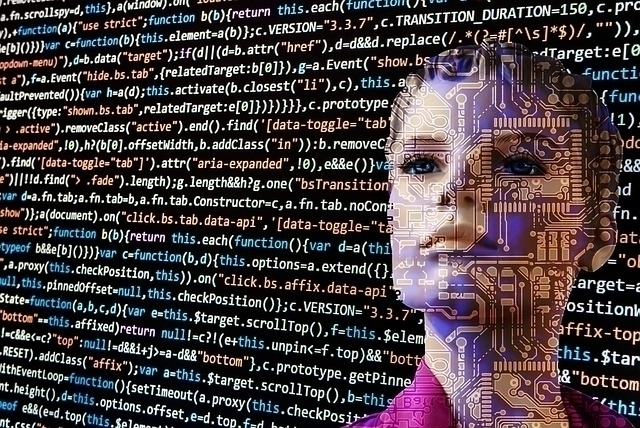Society Today
The impact artificial intelligence has on todays society

Monica Chiorpec, 16.10.2019, 15:22
Artificial intelligence has already become a
reality of the world we live in. The ethical dimension of such an unprecedented
technological upsurge should not be overlooked. It should be granted the status
it deserves; otherwise, the results of artificial intelligence could take
today’s society by surprise.
Today, everybody speaks about the fourth
industrial revolution, just as the digital revolution is known. Artificial
intelligence has come center-stage, and so have the robots and the Internet of
Things. The latter is used in order to connect all sorts of automated devices,
services and systems with one another, thus making a network of objects. The Humanitas
Cismigiu Bookshop in Bucharest city center has played host to a debate on
artificial intelligence. Taking part in the debate was Alexandra Cernian, a
lecturer with the Automation and Computers Faculty of Bucharest Polytechnic
University.
Alexandra Cernian: The notion of artificial
intelligence is no way something new. The concept and its early implementations
occurred in the 1960s, when the first so-called expert-systems were created and
were operational with the help of a couple of a very broad sets of rules,
capable of reaching a decisional support, quite similar to the human one. The
initial idea was to develop such systems that were supposed to replace the
human expert in a certain field. Just like many other systems, the first
applications were implemented in the military or in the weather forecast
areas.
The data storage capacity was the field that
in recent years has seen a remarkable upsurge. The ‘cloud’ type storage systems
have no limits from this viewpoint. What we mean by that is an almost
instantaneous data speed processing. At
present, data can be collected from billions of sensors, in real time, and
almost instantaneously, data analysis and processing can be achieved. The
notion of artificial intelligence has a new scope since, analyzing the data,
today’s technology resorts to what is known as ‘machine learning’.
Alexandra Cernian: Extending this issue of
neuronal networks which try to replicate the functioning mechanisms of the
human brain, these machines have a great speed as they extend those patterns
and learn new things, provided people make available the data they may learn
from. In the last five years, the progress that has been made was spectacular.
Mention has already been made of trans-humanism and there are trends that have
already occurred to that effect. We already have bionic medical prostheses, as
well as all sorts of genetic treatments.
And since the
digital world is trying to take over some human features, the moral dimension
also comes into discussion. Here is Constantin Vica, lecturer with the Faculty
of Philosophy with the Bucharest University.
Constantin Vica:
This involves all the issues that may appear when we start interacting
directly with a human brain. We can speak about privacy, the private sphere of
the brain, we can speak about cyborgs, this dimension of human experience. We
can also speak about improved cognitive functions, including its educational
dimension. Mankind has renewed itself since its early days and for the past 200
years the process has been done within an institutionalized system called
school.
A domain that
has seen an incredible development in the past years is digital technology,
which deals with data and algorithms but also the cognitive technology, which
deals with the human brain and mind. But can machines replace the human brain
entirely and get a moral conscience? Here is Constantin Vica again.
Constantin Vica: Why
would we need ethics today? Because artificial intelligence knows how to deal
with everything but cannot make moral decisions. Consequently, do we need
people anymore? On the other hand people are making huge efforts today to build
automatic systems capable of making moral decisions. People are talking to each
other nowadays, but things will become really interesting when we are going to
talk to machines instead, machines that are able to provide their own answers,
answers that haven’t been pre-programmed and do this with a certain moral
conscience.
Research is
being conducted in countries like the USA, Japan and Korea to decode human
intelligence, so that they may upload that into robots. According to Alexandra
Cernian, human intelligence cannot be replaced by artificial intelligence in
spite of the technical progress.
Alexandra Cernian: This
is a fascinating domain and the latest developments are absolutely fantastic,
but they cannot replace the idea of ethics of what is right or wrong. I’ve
never said that robots will completely replace humans in the future and I don’t
encourage people to think in such a pessimistic way. Of course there are
factories completely robotized, plants whose human personnel has been reduced
to a single supervisor but this doesn’t involve all domains and human
competences cannot be entirely replaced by robots.
The scientists’
main wish today is to implement artificial intelligence, which can reach the
human level of functioning, the so-called general artificial intelligence.
However, for the time being there is no consensus or clear evidence that such
digital intelligence can be obtained in the future.






























